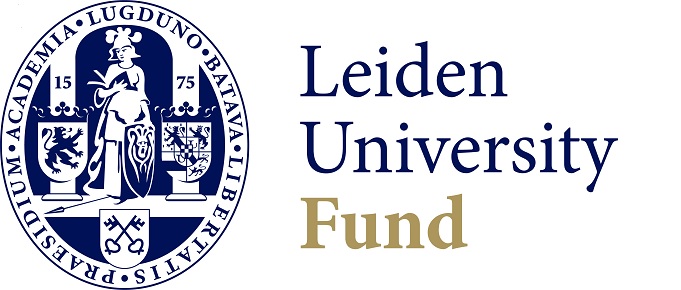
Research into future-focused farming thanks to a new named fund
The Joskind Fund was signed in the Academy Building on Monday 22 May. The fund focuses on food production and biodiversity. Erna Barèl and Bas Reichert, the founders of the Base Clear biotech firm, are also the founders of the fund. Both studied biology at Leiden University and wanted to remain in the discipline, but as entrepreneurs rather than academics. Experience during internships had shown them that there was a demand for expertise in DNA analysis. This was how BaseClear began.
Biodiversity
The company aims to use its knowledge of DNA technologies and microorganisms to help solve global challenges such as climate change and food shortages. The Joskind Fund ties in perfectly with that. It aims to support research that focuses on making food production more effective and environmentally friendly, and on developing technologies that help reduce the negative impact on biodiversity. ‘We wanted to do something good with our assets’, says Erna Barèl. ‘Our company BaseClear specialises in genomics. For us, it is logical to do something relating to this with our assets .’
-
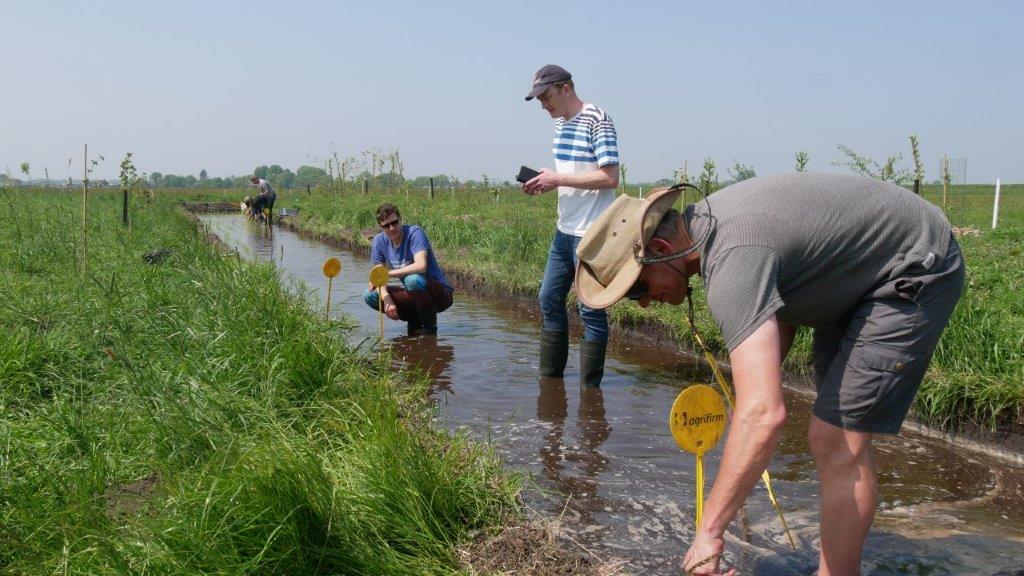
The donors visit PolderLab with ecologist and researcher Maarten Schrama -
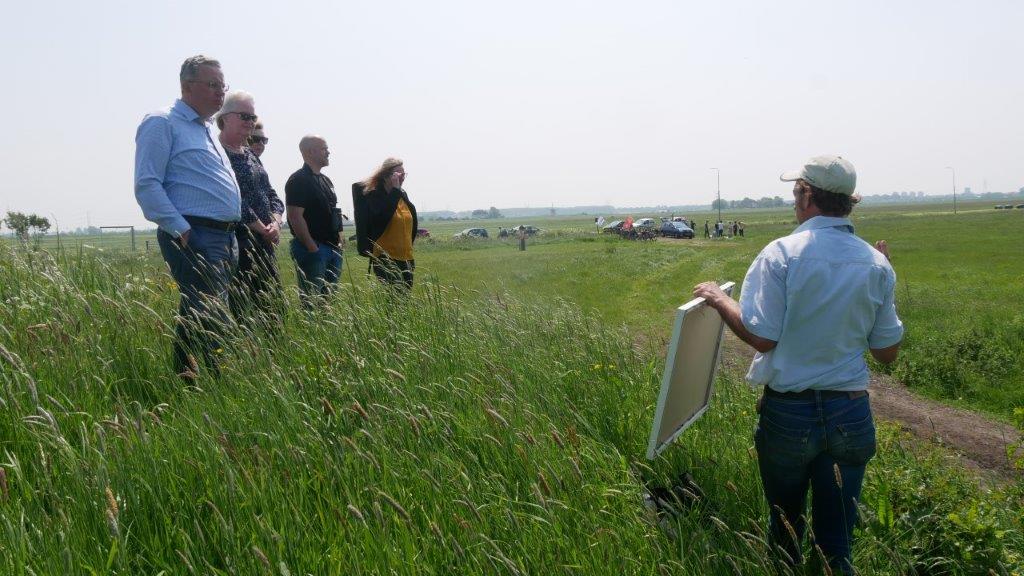
-
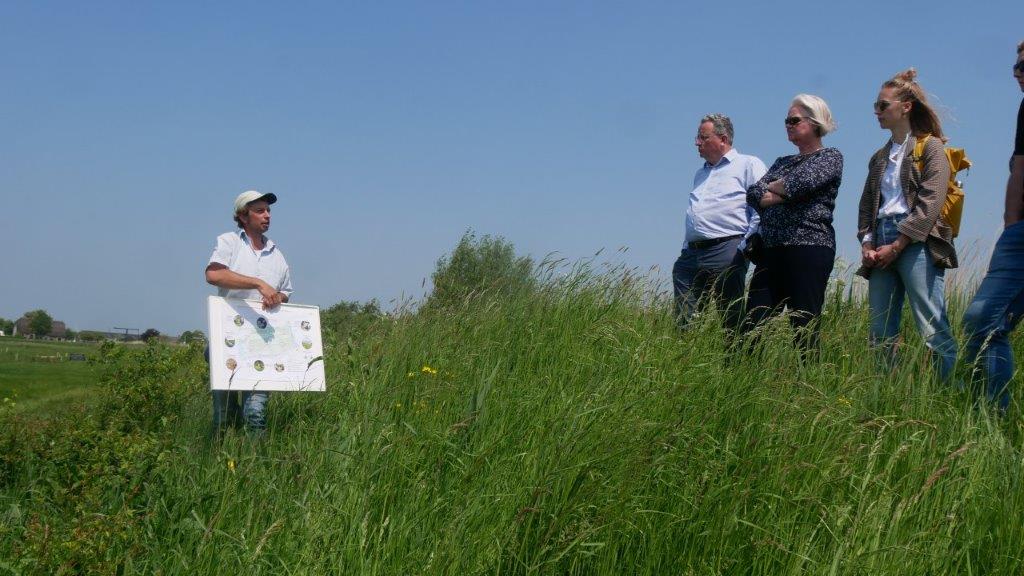
-
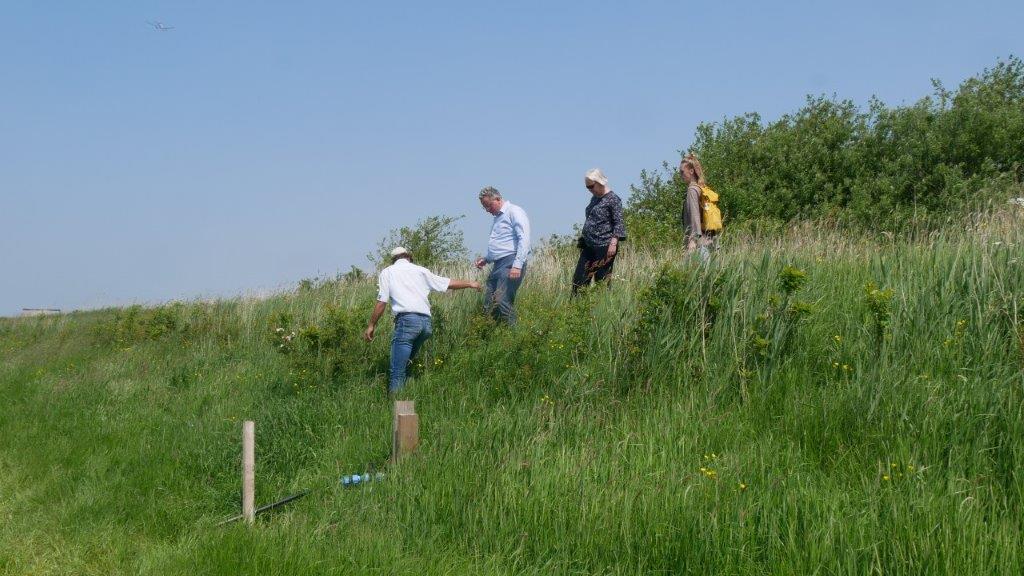
-
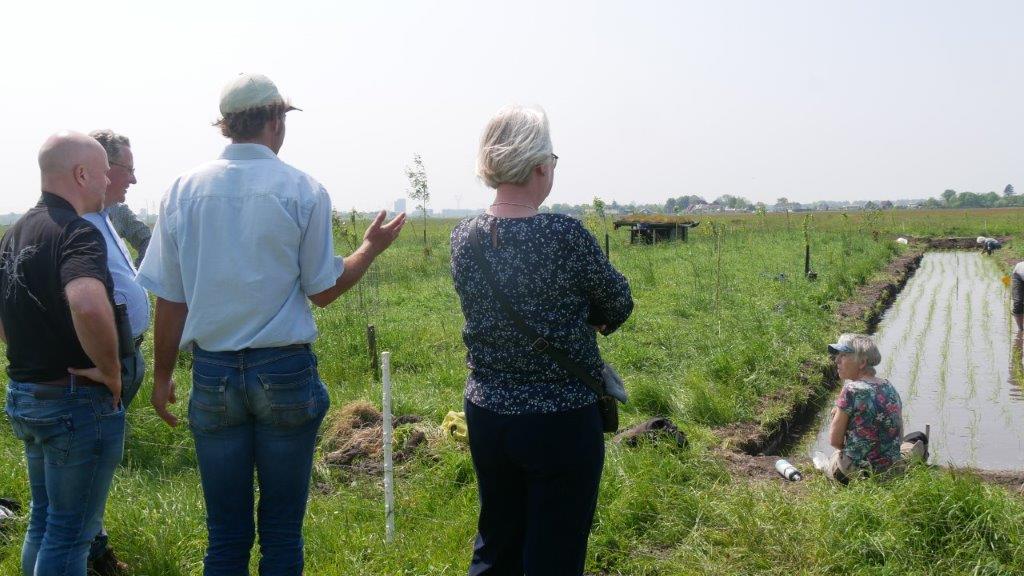
-
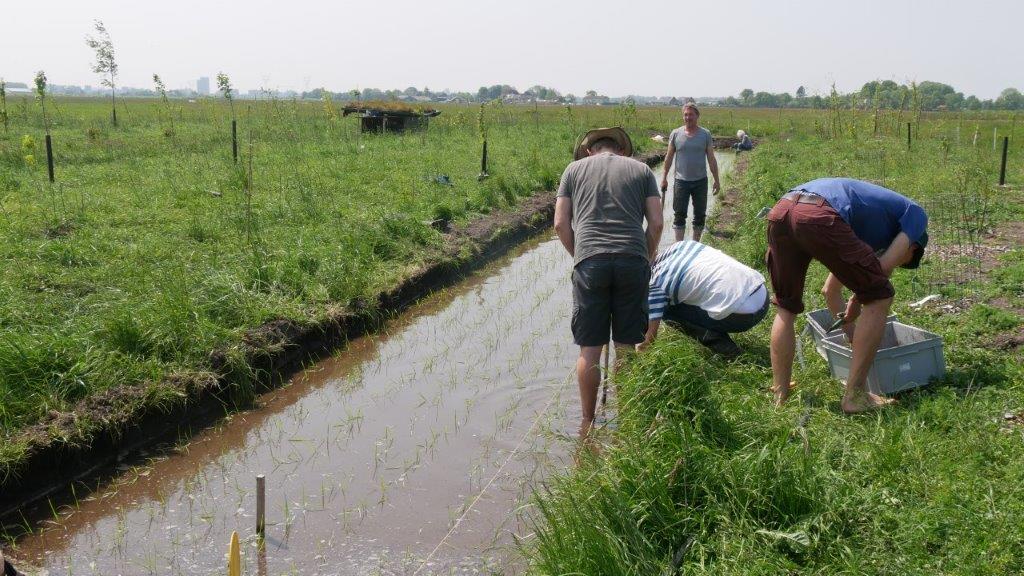
-
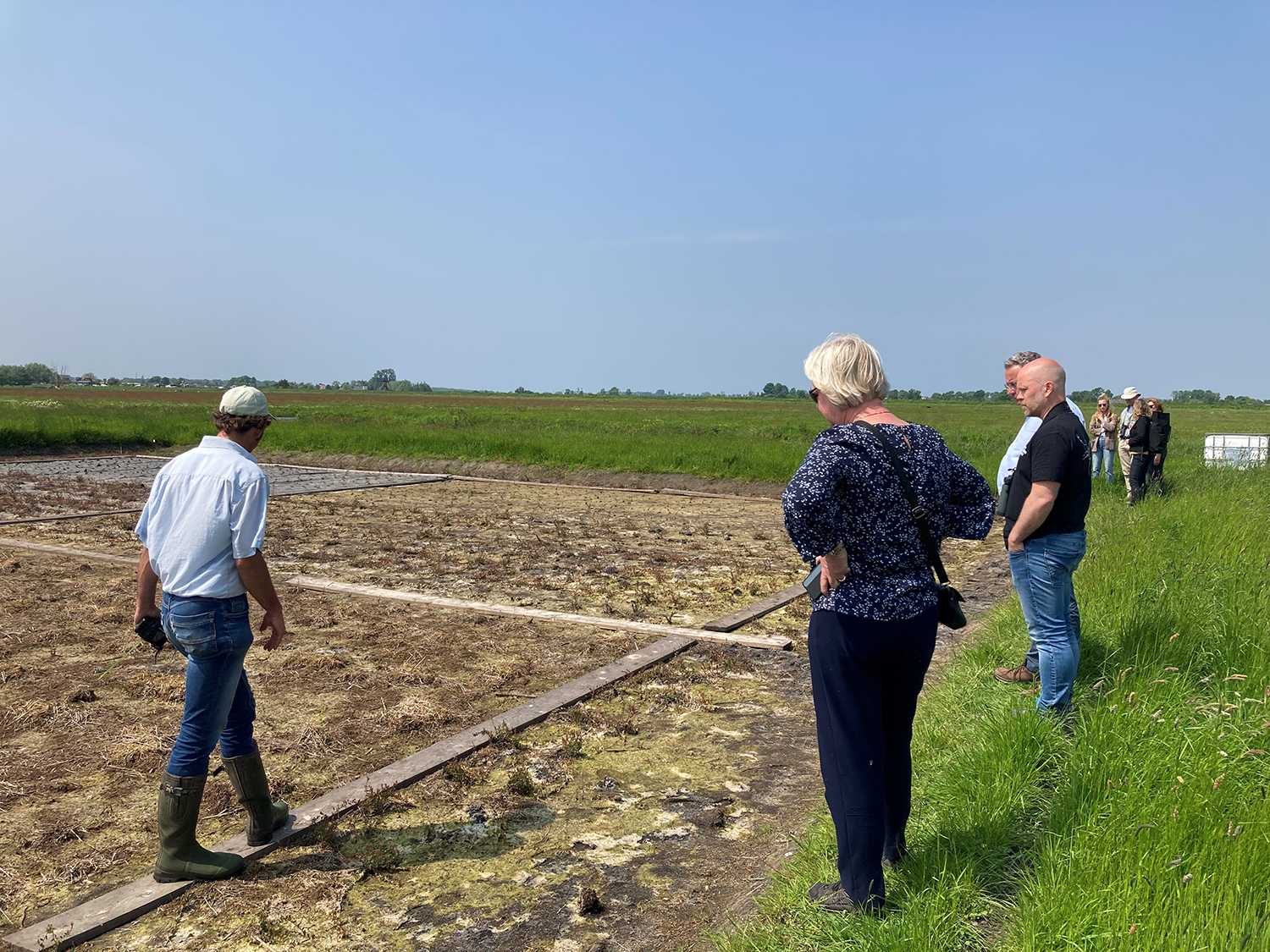
Peat meadows
The first project that the fund will support is PolderLab. Leiden University has joined forces in this project with Land van Ons, farmers, government and other knowledge institutions to research the different long-term options for improving both biodiversity and food production in peat meadows.
It is not only the extensive collaboration that makes this project unique but also the long research horizon of ten years. Much needs to happen because the peat meadows are in a bad state. The soil currently emits nitrogen and greenhouse gases, subsidence and dryness are a problem and the microlife in the soil has more or less vanished.
Measurements
Polderlab wants to develop new, future-proof cultivation methods that will help increase biodiversity, and carbon and nitrogen storage and reverse subsidence. Precise measurements are needed to determine the effect of the different cultivation methods that are being tested.
The Joskind Fund will contribute by funding equipment that can measure subsidence, salinisation, moisture levels and greenhouse gas emissions. The fund is also funding measuring equipment to determine soil biodiversity. How this works is to extract DNA from microorganisms: a perfect match for BaseClear.
-
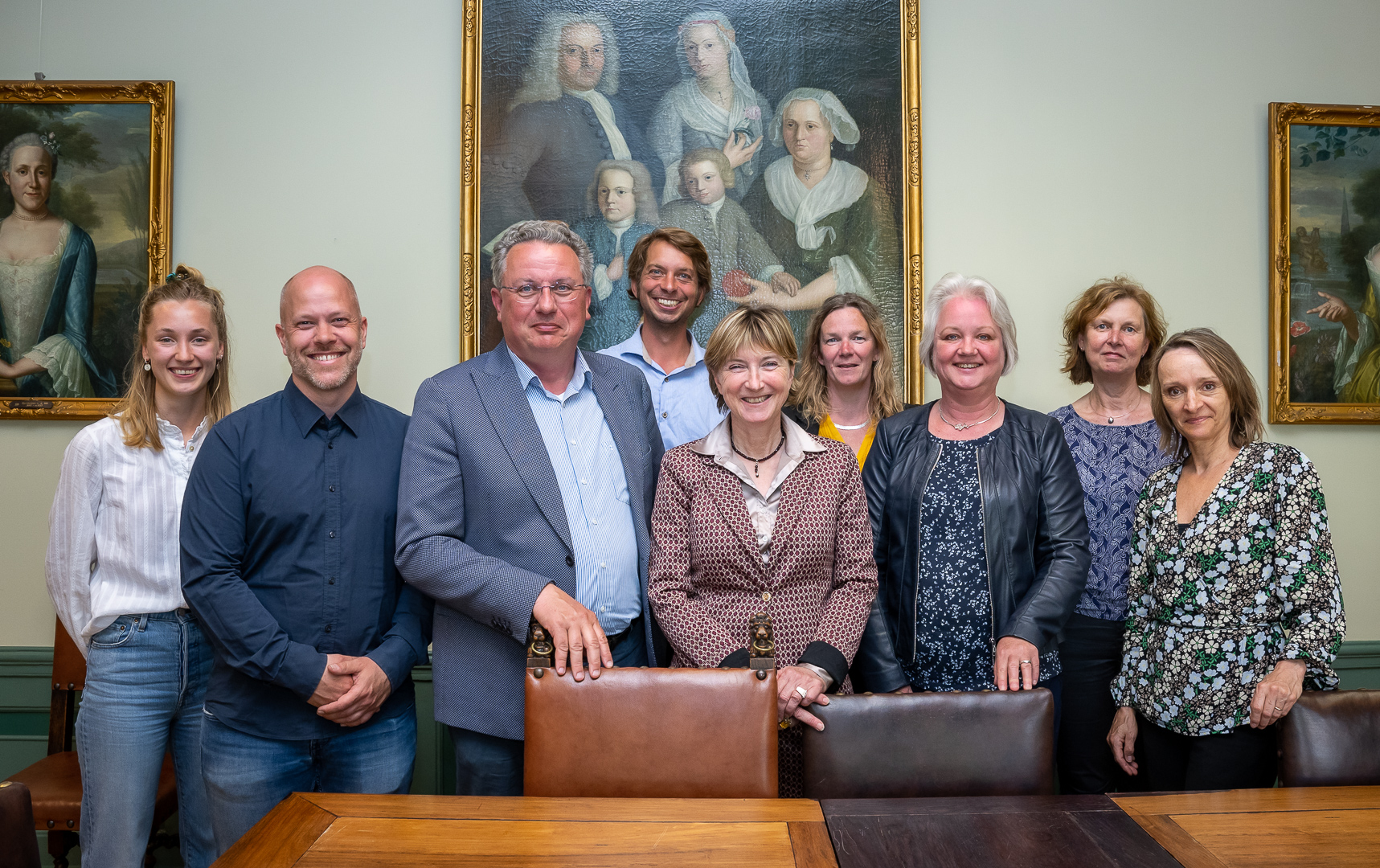
L-r. Fleur van Duin, Krijn Trimbos, Bas Reichert, Maarten Schrama, Annetje Ottow, Martina Vijver, Erna Barèl, Marja Spierenburg and Lilian Visscher -
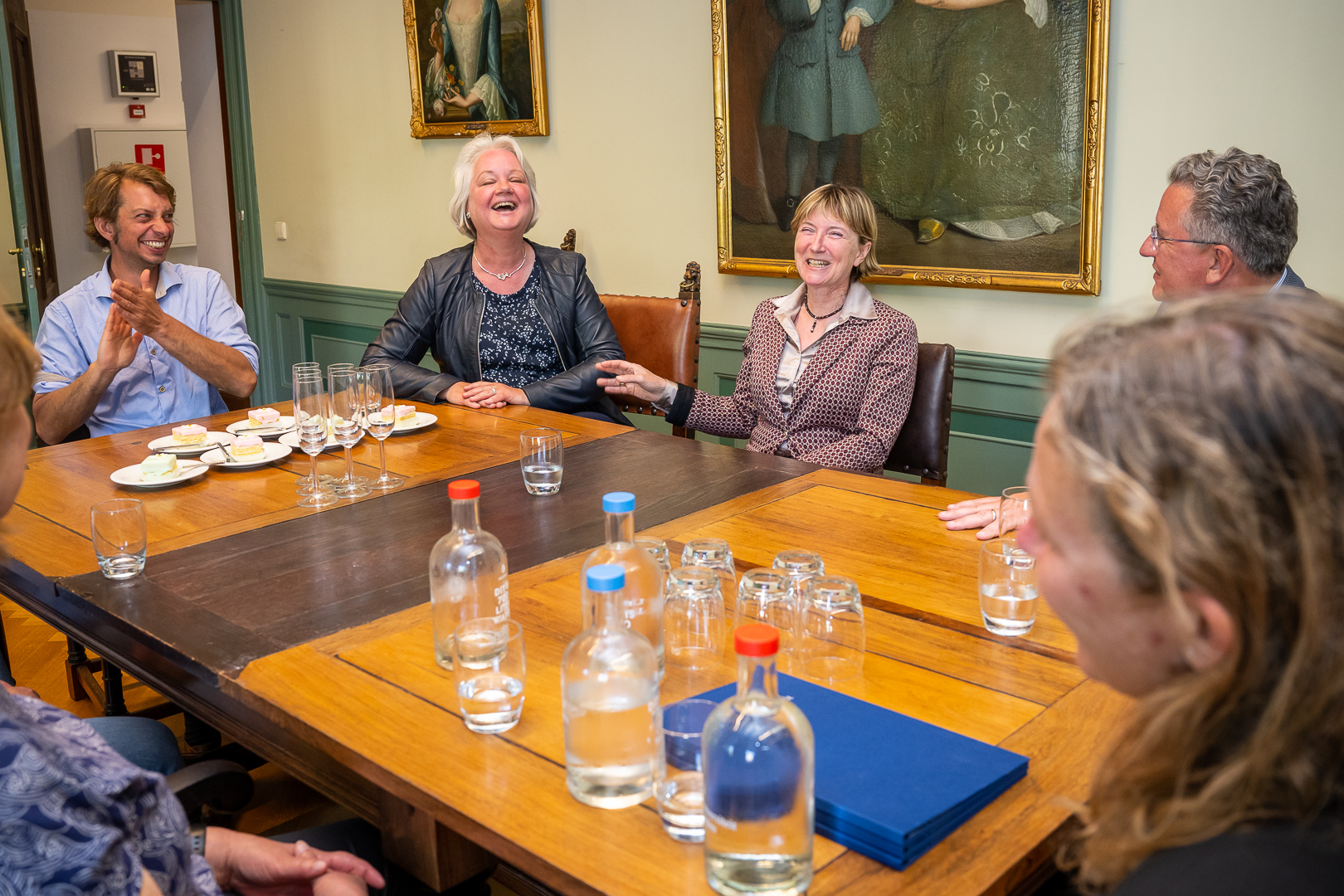
Official signing in the Academy Building. -
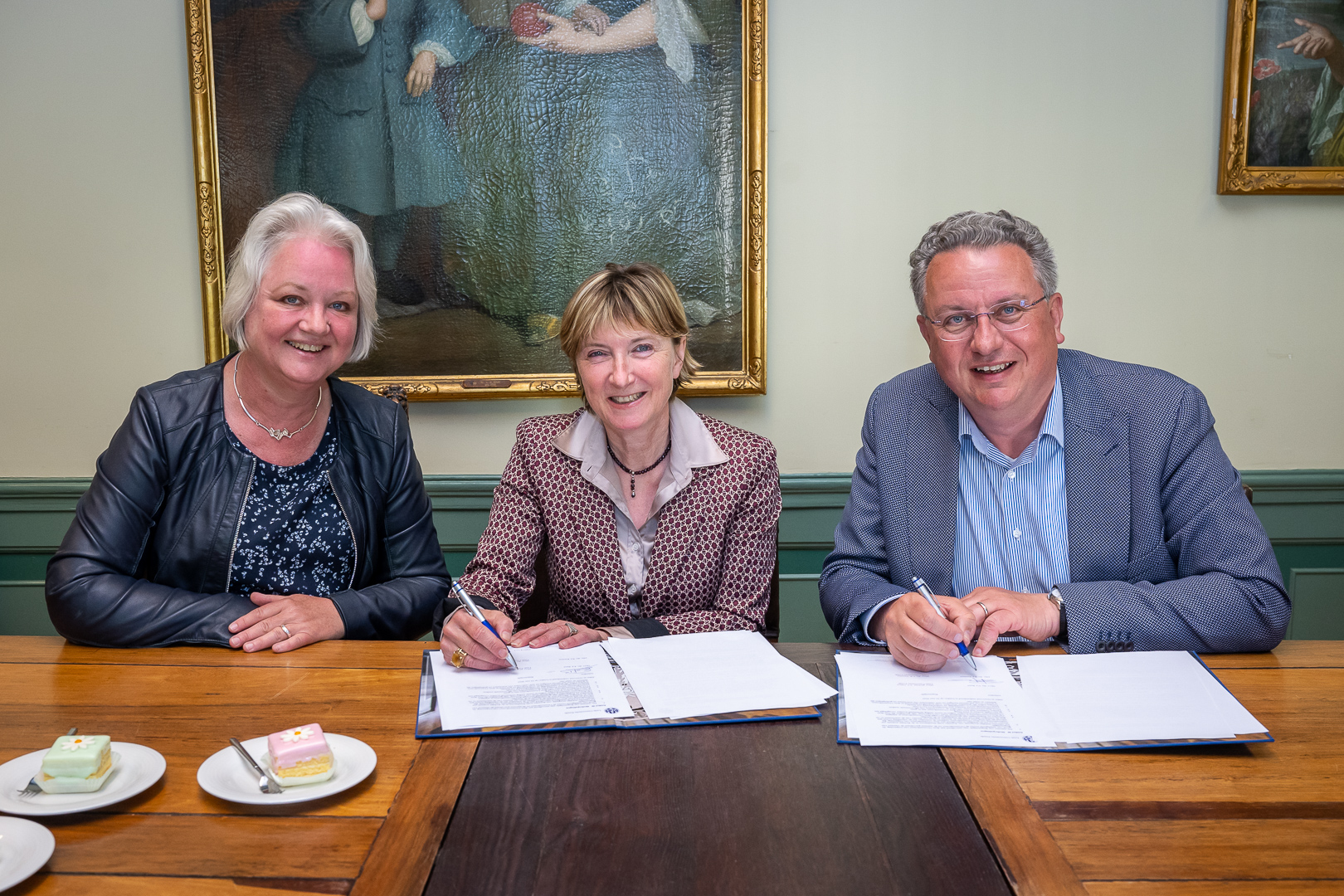
-
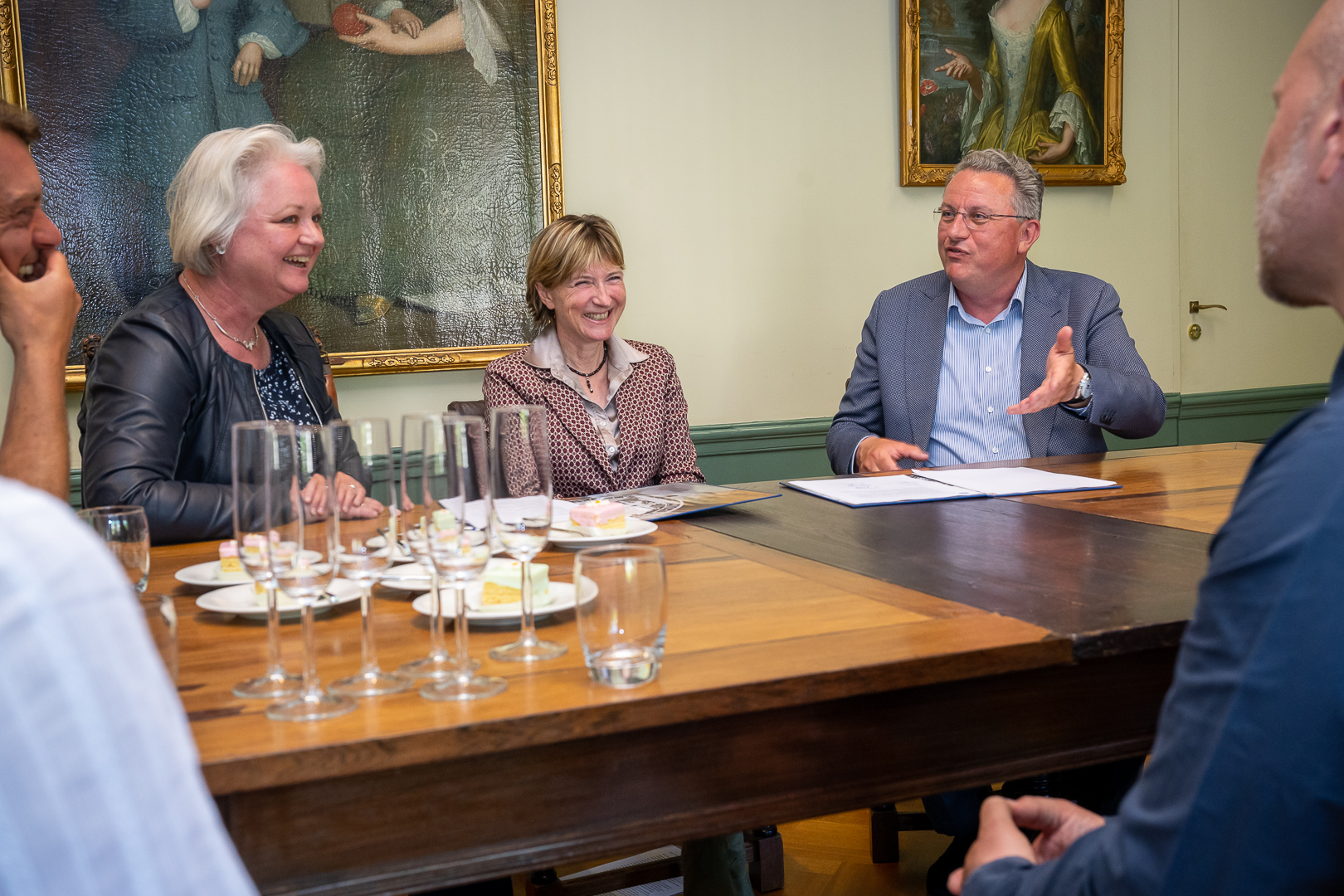
-
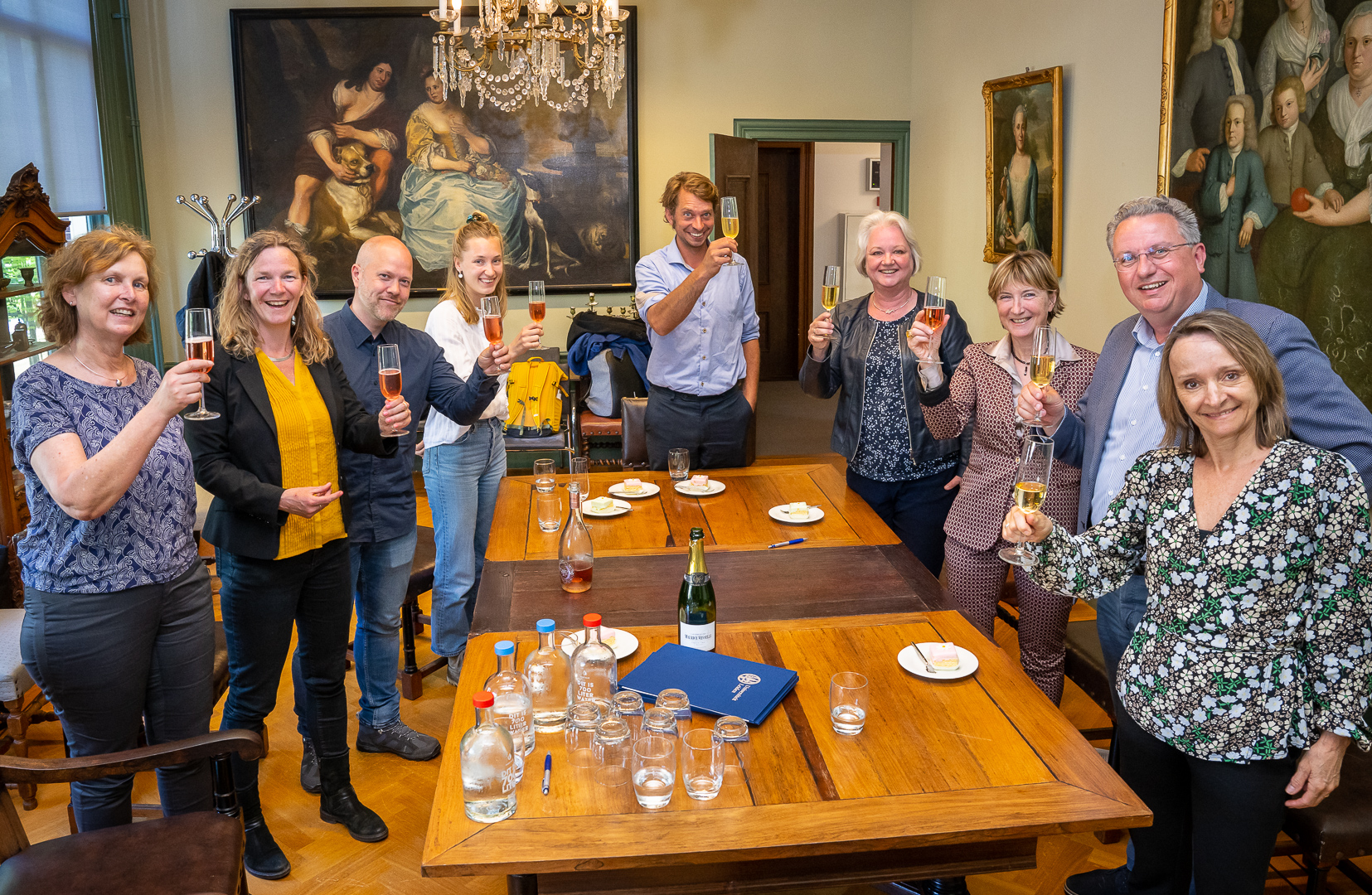
If you are considering establishing a named fund or contributing to an existing one, see this page for more information. Please feel free to contact Eliane Cohen if you have any questions at e.c.cohen@luf.leidenuniv.nl.
